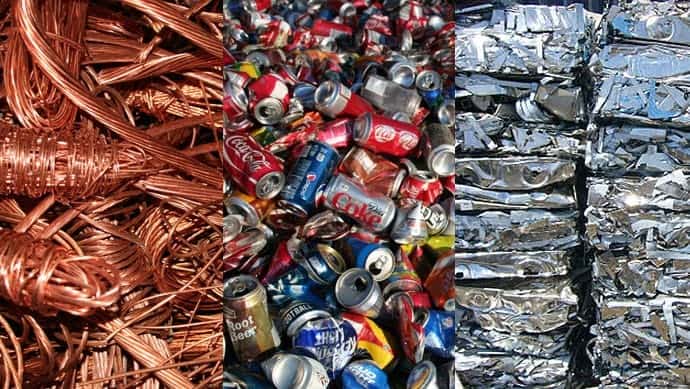As we strive to create a sustainable future, the concept of a circular economy has gained traction across industries. Unlike the traditional “take, make, dispose” model, a circular economy focuses on reducing waste, reusing resources, and recycling materials. Scrap metal recycling is a crucial component of this circular model, offering significant environmental, economic, and social benefits. Here’s why recycling scrap metal is essential to a circular economy and how it contributes to a more sustainable world.
1. Reduces the Need for Mining and Conserves Natural Resources
Mining raw materials is resource-intensive, requiring large amounts of energy, water, and land. By recycling metals, we reduce the need to extract new materials, conserving precious natural resources and minimizing the environmental impact.
- Preserves Finite Resources: Metals like copper, aluminium, and steel are finite. Recycling keeps these valuable resources in circulation, reducing the need for virgin metal extraction.
- Minimizes Land and Habitat Disruption: Mining often leads to deforestation, soil erosion, and ecosystem damage. Recycling metals lessens the need for new mining projects, protecting natural habitats and biodiversity.
By reducing the demand for raw materials, scrap metal recycling conserves resources and protects ecosystems, aligning with the circular economy’s focus on resource conservation.
2. Significantly Saves Energy
Recycling scrap metal is far more energy-efficient than producing metal from raw ore. This energy savings is a cornerstone of the circular economy, as it reduces the carbon footprint of metal production.
- Energy Efficiency: Recycling aluminium, for example, saves up to 95% of the energy needed to create new aluminium from bauxite ore. Similarly, recycling steel saves about 60-70% of the energy required to produce new steel.
- Reduced Carbon Emissions: Less energy consumption means fewer greenhouse gas emissions, making recycling a more sustainable option than mining and processing raw materials.
This energy conservation benefits the environment by reducing reliance on fossil fuels, a core principle of the circular economy.
3. Keeps Metals in Circulation and Extends Their Lifecycle
A circular economy aims to extend the lifecycle of materials by keeping them in circulation for as long as possible. Metals are particularly suited to this purpose, as they can be recycled indefinitely without losing quality.
- Indefinite Recyclability: Metals like aluminium, steel, and copper can be melted down and reformed multiple times without degrading, meaning they can be used in various applications across industries.
- Product Longevity: By turning old metal items into new products, recycling extends the life of metals, reducing the need for new material production and waste generation.
Keeping metals in use for longer aligns perfectly with the circular economy’s goal of minimizing waste and maximizing resource efficiency.
4. Reduces Waste and Eases the Strain on Landfills
One of the primary goals of a circular economy is waste reduction. When metals are discarded, they end up in landfills, taking up space and contributing to pollution. Recycling scrap metal helps divert waste from landfills, conserving valuable landfill space and reducing environmental strain.
- Minimizes Landfill Overload: Metal waste occupies significant space in landfills and doesn’t decompose, leading to long-term waste build-up. Recycling scrap metal decreases this burden, preserving landfill space for non-recyclable materials.
- Prevents Soil and Water Contamination: Metals left in landfills can corrode over time, releasing harmful chemicals into the soil and groundwater. Recycling reduces the environmental risks associated with metal waste.
By reducing waste and preventing pollution, scrap metal recycling supports a circular economy’s emphasis on efficient, sustainable waste management.
5. Supports Local Economies and Creates Jobs
The circular economy isn’t just about environmental benefits; it also focuses on creating sustainable economic opportunities. Recycling scrap metal contributes to this goal by providing jobs in collection, sorting, processing, and manufacturing.
- Job Creation: The recycling industry supports thousands of jobs globally, from collection centres and processing facilities to manufacturing plants that utilize recycled materials.
- Boosts Local Economy: Recycling scrap metal often involves local collection and processing, keeping resources within communities and creating local economic value.
By creating employment and strengthening local economies, scrap metal recycling supports the economic pillars of a circular economy.
6. Promotes Product Innovation and Eco-Friendly Manufacturing
A circular economy encourages companies to develop sustainable products and processes. Recycled metals allow manufacturers to design products with sustainability in mind, as recycled materials are more eco-friendly and often less expensive than new materials.
- Sustainable Product Design: Recycled metals can be used in a range of industries, including construction, automotive, and electronics, encouraging manufacturers to adopt sustainable practices.
- Eco-Friendly Branding: Companies that use recycled materials appeal to eco-conscious consumers, building a reputation for sustainability and aligning with circular economy goals.
Recycling metals supports a cycle of eco-innovation, allowing businesses to adopt greener practices and meet the growing demand for sustainable products.
7. Reduces Greenhouse Gas Emissions
The circular economy seeks to limit greenhouse gas emissions by focusing on resource efficiency and renewable energy. Recycling scrap metal contributes significantly to emissions reduction by cutting down on the energy-intensive processes involved in mining and refining new metals.
- Decreases Fossil Fuel Use: Recycling metals requires less energy, which means fewer fossil fuels burned and reduced CO₂ emissions.
- Combats Climate Change: By reducing emissions, metal recycling helps mitigate climate change, a key priority in the shift toward a circular economy.
As recycling lowers emissions, it aligns directly with the circular economy’s goals of sustainability and environmental stewardship.
8. Encourages a Culture of Responsibility and Conservation
In a circular economy, individuals, businesses, and governments work together to create a culture that prioritizes responsibility, conservation, and resource efficiency. Recycling scrap metal encourages people to rethink waste and see value in materials that would otherwise be discarded.
- Promotes Awareness: Recycling programs raise awareness about waste reduction and resource conservation, fostering a sense of responsibility toward the environment.
- Inspires Sustainable Choices: By demonstrating the benefits of recycling, scrap metal collection bolton inspires individuals and organizations to make sustainable choices, furthering the circular economy’s reach.
This cultural shift toward sustainability is essential for building a resilient, circular economy that thrives on collective responsibility and environmental mindfulness.
Scrap metal recycling is a cornerstone of the circular economy, providing benefits that extend far beyond reducing waste. By conserving resources, saving energy, creating jobs, and reducing emissions, metal recycling embodies the principles of a circular economy and sets a path toward a more sustainable future. As individuals and businesses embrace recycling, we move closer to a world where resources are reused, waste is minimized, and the environment is protected for future generations. Embracing scrap metal recycling is not just an economic or environmental choice; it’s a commitment to a sustainable, circular world.







